Newly minted Supreme Court Justice Neil M. Gorsuch came out of the starting blocks quickly in his first months, firmly planting himself on the court’s right along with Justices Clarence Thomas and Samuel A. Alito Jr. as defenders of religious freedom and skeptics of judicial meddling in the other two branches’ work.
In a series of rulings Monday, the last day of the 2016-17 session, Justice Gorsuch blasted colleagues for an aggressive pro-gay-rights decision in a case about same-sex marriages and children’s birth certificates, and he joined a series of other opinions signaling that he wanted to make a bold defense of First Amendment religious rights and Second Amendment gun rights.
In doing so, analysts said, he planted himself to the ideological right of Chief Justice John G. Roberts Jr. and seemed to align himself most frequently with Justice Thomas, the court’s most libertarian-leaning member.
“The guy’s not afraid to write,” said Josh Blackman, an associate professor at South Texas College of Law. “He’s not afraid to assert himself.”
Confirmed to the court in April, Justice Gorsuch participated in only a small fraction of the cases this year. But in a year that lacked big-name rulings, his ascendance was the biggest story of the court’s term. He is already cutting an outsized figure by asking his fair share of questions and taking stances that suggest he will carve out his own jurisprudence on the high court.
In one brief dissent Monday, he chided his colleagues for moving quickly to overturn an Arkansas law refusing to list the name of a same-sex partner when a child is conceived through artificial insemination. He said the court should have at least heard the state’s justifications.
In another dissent, Justice Gorsuch complained of the court’s timidity in defending religious freedoms. The court ruled that a Missouri church couldn’t be barred from receiving government money under a program designed to improve playgrounds.
Justice Gorsuch, though, said the court was creating bizarre distinctions suggesting there is a difference between “religious status and religious use” when it comes to church and state interactions.
“Does a religious man say grace before dinner? Or does a man begin his meal in a religious manner?” he wondered. “The distinction blurs in much the same way the line between acts and omissions can blur when stared at too long, leaving us to ask (for example) whether the man who drowns by awaiting the incoming tide does so by act (coming upon the sea) or omission (allowing the sea to come upon him).”
He concluded that the First Amendment’s protections of religious freedom shouldn’t care about the distinction either way.
“After all, that Clause guarantees the free exercise of religion, not just the right to inward belief (or status),” he wrote, in an opinion joined by Justice Thomas.
The two justices also dissented from the court’s refusal to take up a gun rights case. They said the court was copping out by refusing to give clear guidance on whether the Second Amendment protects Americans’ right to carry a firearm outside the home.
They said the court was treating Second Amendment rights as lesser guarantees than other Bill of Rights protections.
For liberal pressure groups that urged the Senate to reject Judge Gorsuch, his early rulings were ominous.
Alliance for Justice President Nan Aron said he has placed himself on the court’s “extreme right flank.”
“This is a critical reminder that Supreme Court appointments have far-reaching consequences for our democracy,” she said, laying down a marker for any high court vacancies that might arise under President Trump.
Justice Gorsuch’s work with Justice Thomas earned him some derision.
“Neil Gorsuch is Clarence Thomas’s Mini-Me,” Jeffrey Toobin, a liberal court analyst who works for CNN and The New Yorker, wrote on Twitter.
Mr. Blackman said that did a disservice to the justices, who bring their own developed judicial philosophies to the court.
Justice Gorsuch filled the seat of Justice Antonin Scalia, who passed away in February 2016. Some conservatives had hoped the new justice would also live up to the legacy of Scalia.
Mr. Blackman said it’s too early to say whether that would happen because Scalia had “such a gravity” on the court.
“We’re talking one of the top justices of all time,” he said.
Liberal analysts, though, blasted Justice Gorsuch for what they have seen already.
Barry W. Lynn, executive director of Americans United for Separation of Church and State, said the judge’s religion rulings were particularly ominous.
“Neil Gorsuch has made it very clear that he is taking a very hard line in these religion cases that he really does believe that religious claims should always prevail over any other civil rights issue.”
That could play out in one of the cases that the court said it will take up in the next term: the Masterpiece Cakeshop’s fight with a Colorado civil rights commission over the bakery’s refusal to bake a cake for a same-sex wedding. The bakery cites its religious beliefs in refusing the job, but civil liberties groups say it cannot discriminate in its clients based on their sexual orientation.
Justice Gorsuch may have been a deciding factor in the case even reaching the court.
The case was presented to the court last year, but the justices put off a decision about whether to hear it until Monday. It takes four justices to agree to take up a case, and some liberal analysts said they figured Chief Justice Roberts and Justices Thomas and Alito had been waiting for a Trump pick to be the fourth justice.
© Copyright (c) 2017 News World Communications, Inc.
—-
This content is published through a licensing agreement with Acquire Media using its NewsEdge technology.



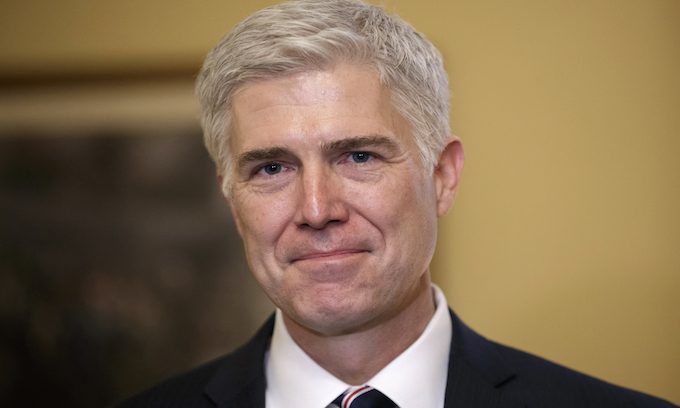
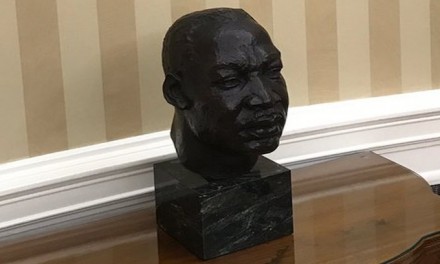

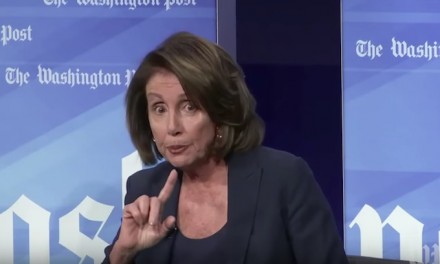








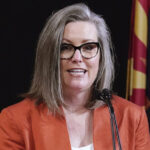


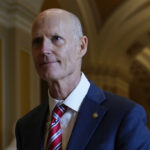
Recent Comments